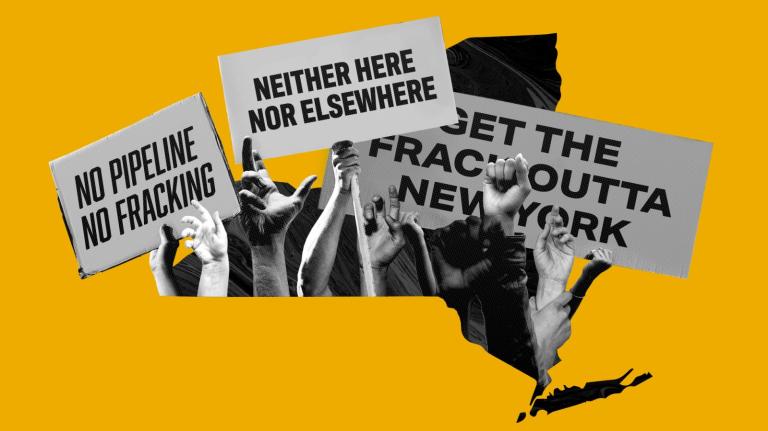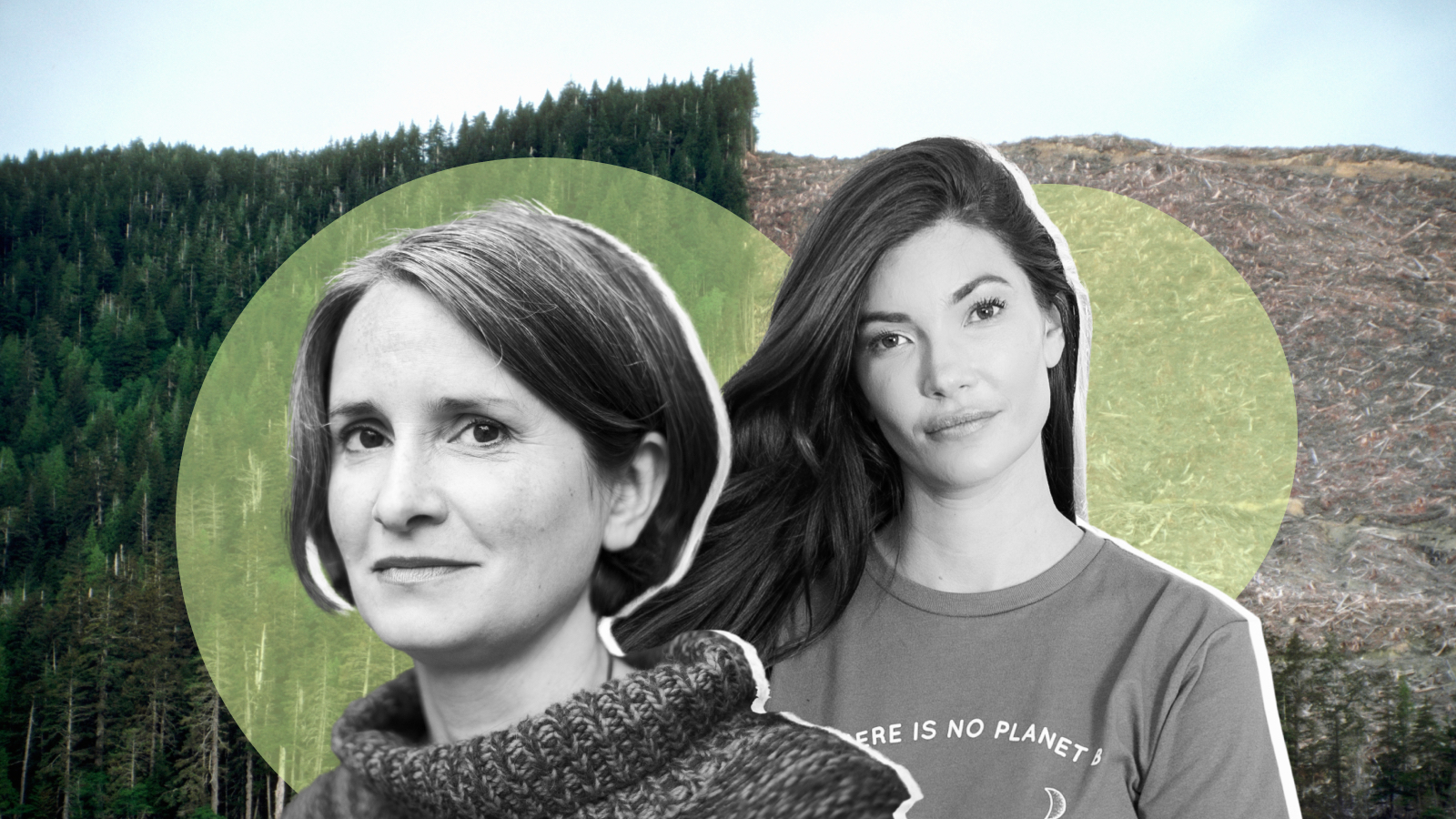Fifty years of logging, gold mining, and soy plantations have decimated the Amazon rainforest: about 17 percent is gone. Why isn’t that a crime on the level of genocide? That’s what Jojo Mehta, a U.K.-based environmental advocate, and Julia Jackson, a California-based philanthropist and founder of Grounded, a network of climate advocates, are pushing for. They want the International Criminal Court (ICC) to create a law that would prosecute corporations and global leaders for ecocide, the large-scale decimation of ecosystems that sequester carbon, sustain Indigenous communities, and keep our air and water clean.
The idea for an ecocide law stretches back to 1970, when American botanist Arthur Galston coined the term to decry the damage wrought by Agent Orange in the forests of Vietnam and Cambodia. Codifying the crime has since gained support from activists like Greta Thunberg, politicians like President Emmanuel Macron of France, and even Pope Francis. In fact, 10 countries have criminalized ecocide within their own legal systems.
But Mehta and Jackson argue that the ICC and its 123 member states must also embrace the law. The Stop Ecocide Foundation, which Mehta leads, convened a team of international lawyers to draft a legal definition of ecocide. They plan to complete the draft by June and will propose it as an amendment to the Rome Statute, the treaty that established the ICC, so that it’s prosecuted the same as crimes against humanity, genocide, and war crimes. Here, Mehta and Jackson explain why making ecocide a crime will make room for other climate solutions and has the potential to redefine our collective values. Their comments have been edited for length and clarity.
Q: The world is speeding toward a future destabilized by climate crisis. How can an ecocide law help pump the breaks?
Jackson: I come from a family of land-use attorneys, and I’ve seen firsthand how the law can be used as a powerful tool. Morocco and Gambia are the only countries on target to reach their commitments under the Paris Climate Agreement. We need a guardrail holding countries and corporations accountable. Creating a law against ecocide can provide that.
Mehta: Ecocide is most often a corporate crime. Of course, CEOs don’t want to be seen alongside war criminals; your company’s share price depends directly on how you’re viewed. The potential for deterrence is huge. Imagine if the crime of ecocide had been in place when the ICC was created in 2002. What might the world look like now?
Q: Why is it important to criminalize ecocide at the international level? Can’t countries just adopt their own ecocide laws?
Mehta: The ICC is intended to be a complimentary court that steps in when national criminal justice systems can’t or won’t take up a case. When you make something a crime at the ICC, member states have to ratify that crime and apply it in their own domestic legislation.
Without that, because of corruption or economic interests, it can be hard to legally pursue ecocide-related cases within a country. Lawmakers in France have been trying to legislate ecocide nationally, but opponents fear it would jeopardize the country’s relationships with influential companies. Now parliament is trying to water down the definition, which is counterproductive.
Many of the worst offenders of ecocide tend to be transnational corporations that operate across many jurisdictions. You might have a U.S. company that’s committing ecocidal activities in, say, Venezuela, but has an operational office in Belgium. So if Belgium has ratified this crime, the country’s law enforcement can arrest and try employees of that company. An international law broadens the scope of where prosecutions can take place.
Q: How is ecocide intertwined with existing laws like genocide and crimes against humanity?
Jackson: There’s a history, especially in South America, of fossil fuel and mining companies displacing Indigenous peoples. Often it goes undocumented. Eighty percent of the most biodiverse regions in the world are occupied by Indigenous communities, yet they’re less than 5 percent of humanity’s population. That’s no accident. Ecocide impacts BIPOC communities the most, so criminalizing it can empower those who are suffering the greatest consequences.
Mehta: Chief Raoni Metuktire of the Kayapo people in Brazil recently filed a case in the ICC accusing President Bolsonaro of crimes against humanity. To do so, he and his legal advisors had to dedicate a lot of time gathering evidence of human-related crimes. If an ecocide law had been in place, he could have filed and achieved justice a long time ago — and in the process, prevented a lot of destruction.
Q: Laws tend to reflect our cultural values. How can criminalizing ecocide change how the collective values nature?
Mehta: In our dominant Western culture, we believe that nature is separate from us, that we are here to dominate it and be the masters of the world. And that gives us a license to extract and treat nature as a resource only.
Until we start facing the reality that we’re deeply intertwined with nature and dependent upon its life-support systems, we’re not going to be able to shift our destructive trajectory. Criminal law is uniquely poised to accomplish this. We use criminal law to draw moral lines. We all know that you can’t go to a government and get a permit to slaughter people for your business. But you can go and get a permit to mine, to frack, to do industrial fishing.
Environmental laws tend to exist only in the regulatory sphere, where destructive activities are allowed to an extent. If the international community creates a criminal law of ecocide alongside crimes against humanity, genocide, and war crimes, what you’re saying is that destroying ecosystems to this extent is just as bad as destroying people.
Q: How does criminalizing ecocide make room for more climate solutions?
Mehta: Our organization doesn’t see criminalizing ecocide as something that will fix all the world’s problems. However, it’s difficult to see how we can begin to fix anything without it. Those who are championing solutions like regenerative farming and renewable energy are competing with people who are doing what’s cheapest and dirtiest in order to rake in profits and maximize shareholder return. That’s what our systems encourage.
Criminalizing ecocide would level the playing field by ensuring that companies can’t get ahead by destroying entire ecosystems, which will force them to adopt more sustainable practices. That would ensure that eco-conscious players can advance. At the moment, environmental defenders are called criminals for obstructing mining and deforestation. We need to flip that so destructive activity is what’s criminal; then protesters become moral defenders of the law, and our legal system is supporting environmental solutionists instead of penalizing them.
Jackson: We can’t expect technology to reverse the climate crisis without stable ecosystems and a healthy biosphere. Criminalizing ecocide is a necessary precursor to climate solutions. The natural world is so intelligent, if we treat it with respect and minimal footprint, we can turn the climate crisis around. But outlawing ecocide isn’t enough on its own, in the same way that carbon capturing technology isn’t enough. We need a symphony of solutions.
Q: Ecocide is such a powerful word. Why do you think it resonates?
Mehta: We all have this really strong sense that terrible damage is being done to the natural living world. It’s happening all around us, we see it in so many different ways. The word ecocide gives people the language to articulate that — as soon as you understand the word, you know that something’s wrong and should be stopped. And at the grassroots level it gives people something to rally around, a way to directly influence the political conversation.
Jackson: The climate movement is very cerebral and scientific. I’m not saying that’s not important, but we also need to connect the heart with the mind. We’re in a moral crisis.
The word “ecocide” gives people a way to express how powerless they feel, and criminalizing ecocide gives power back to the people. It’s a heart-led effort. It forces the world to ask, ‘Who are we at our core? What do we want our future to look like? What are our moral values in terms of how we treat the planet?’
This post has been updated.



